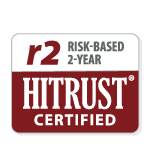On July 6, 2022, the Arizona legislature passed 2022 Ariz. SB 1021 regarding hospital liens for healthcare treatment and transportation of an injured person. The bill is effective September 24, 2022, amending A.R.S. § 33-931 and adding A.R.S. § 33-937. This article discusses the changes that hospitals should be aware of concerning lien-filing practices.
It is important to note that the amendments and additions discussed apply to liens filed for services rendered after December 31, 2022. The changes impact entities that provide care and treatment or transportation of an injured person and charges that exceed $250.
New limits for hospital liens
Under the amended A.R.S. § 33-931, medical payments coverage will be excluded from lien amounts. Previously, only health insurance and underinsured and uninsured motorist coverage were excluded from lien amounts. While medical payment coverage is not required in Arizona, this additional exclusion limits the available healthcare revenue recovery amount when filing liens on accounts where the patient elects to have such coverage.
Additionally, and much more limiting than the medical payment exclusion, under the amended statute one-third of any judgment will be exempt from lien or assignment. This means that automatically, any recovery will be limited to only two-thirds of the awarded amount for lien satisfaction. Of note, liens perfected by a hospital do have priority for payment.
The amendment adds another new wrinkle when it comes to patients who undergo treatment that is covered by their health insurance plan. Specifically:
“[i]f the injured person is covered as an insured or dependent under a health insurance or similar medical benefit plan and the health care provider has a valid and binding contract with that insurer or plan as an in-network provider, the contract must expressly allow the health care provider to assert a lien or assignment that is authorized by this section.”
It should be noted that the above subsection would not apply if the patient and provider have a written document stating the patient elects not to use health insurance coverage for the treatment. Moreover, providers may still enforce liens for amounts the patient is personally responsible for under their insurance or benefit plan (e.g., coinsurance, copayments, and/or deductibles).
Finally, with the addition of A.R.S. § 33-937, any compromise of a lien must be “fair and equitable to all parties,” and gives a list of 11 factors that the provider “shall” consider when determining the extent of the compromise. The list of factors includes standard items such as the nature of the patient’s illness, the provider’s customary charges, the total amount of the award, etc., but it also includes a catch-all for “any other factor relevant to a fair and equitable settlement under the circumstances.”
One benefit of the new statute is that it codifies an opportunity for providers to obtain a proposed distribution plan of settlement monies to lienholders and the patient. This shall be provided upon request of the healthcare provider.
Impact on Hospital Revenue Cycle Management & Next Steps
Implementation of this amendment will have a negative impact on hospitals that conduct lien-filing practices. First, hospitals will experience increased limitations of overall recovery amounts available from filing liens. Second, in the event a lien is filed, the plaintiff’s counsel may use the new factors against providers to argue non-compliance and defeat a lien altogether.
To mitigate the impact of the updated lien protocols, hospitals who file liens (or plan to file liens) should consider the following:
- Coordinate with Managed Care/contract negotiation teams to add language to payer contracts expressly permitting lien-filing consistent with the Arizona statutes. Given the short notice on the effective date of the amendment and the dates of service that will be impacted, adding this contract language quickly is imperative. Without this contract language, the lien process cannot be initiated for a patient receiving treatment for covered, in-network benefits.
- Continue to educate front-end staff on capturing accurate patient insurance information and the reason for treatment (e.g., motor vehicle accident, etc.). It will be more critical than ever to accurately capture the patient’s health insurance information at registration for billing purposes in the event a lien may be filed. Aspirion interprets the language of “or similar medical benefit plan” to include traditional Medicare and traditional Medicaid, so all insurance data is relevant. As a business practice, Aspirion recommends providers bill a patient’s health insurance before filing a lien when the patient has health insurance.
- Ensure all hospital representatives who may file liens (internal and/or external) utilize the list of 11 factors for compromise of the lien. Failure to consider even one factor may prove detrimental to the lien overall.
- Request the proposed distribution of settlement monies from the patient for every lien filed. This will provide the hospital with more clarity up front as to how many lienholders there are and what to expect in terms of recovery.
Aspirion will monitor lien-filing activity in the state of Arizona after the effective date to track the impact of the statutes on health care providers.
No aspect of this article should be construed as providing any legal interpretation, advice, or conclusions.
QUESTIONS?
Please reach out to us at info@aspirion.com.

%20(1).png?width=116&height=115&name=Best%20in%20KLAS_2024_116x115%20(002)%20(1).png)
%20(1).png?width=116&name=Best%20in%20KLAS_2024_116x115%20(002)%20(1).png)
